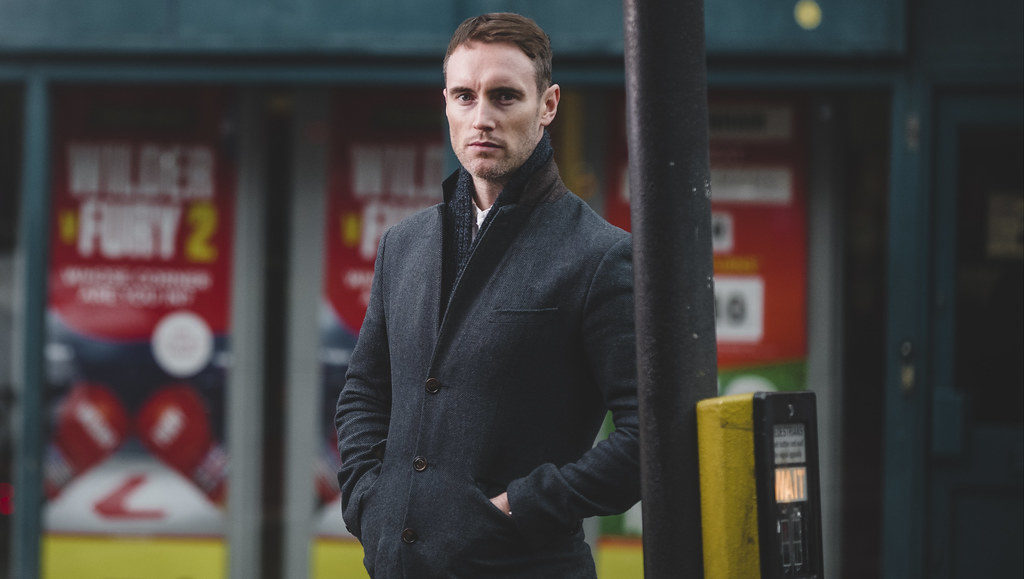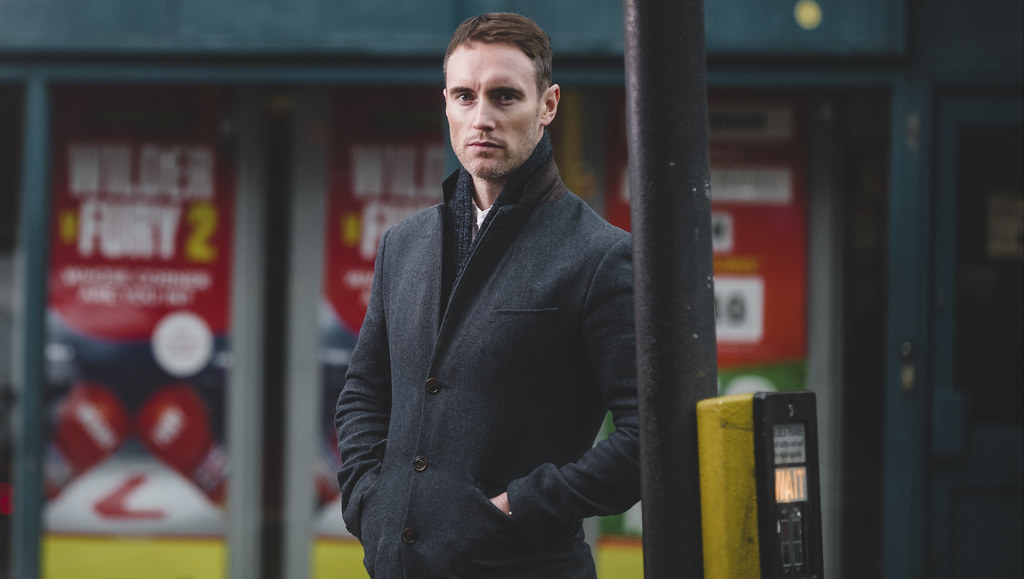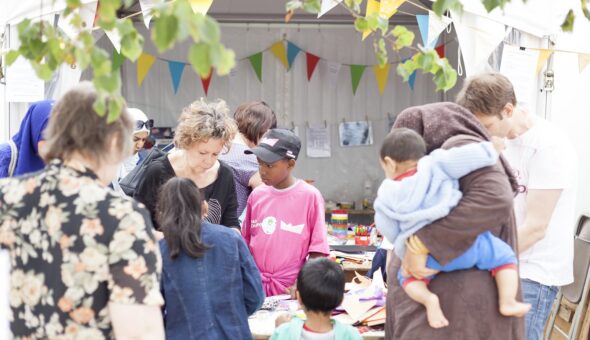Earlier this year Darragh McGee, (Department of Health), was selected to be a New Generation Thinker, and we caught up with him ahead of the airing of his first programme on BBC Radio 3 to discuss the scheme and why he was interested in radio as a way to engage people with his research.
New Generation Thinkers
The New Generation Thinkers scheme is a collaboration between the Arts and Humanities Research Council (AHRC) and BBC Radio 3 that aims to use broadcast media to share arts and humanities research. Through first-hand experience of working with programme-makers to produce content based on their research, the scheme is a professional development opportunity for researchers to develop and refine their media skills.
On the (socially distanced) sofa with... Darragh McGee
Selected from hundreds of applicants, Darragh is the first researcher from the University of Bath to be successful in becoming a New Generation Thinker and joins a cohort of nine other researchers from across the arts and humanities. Ahead of his first radio contribution as part of the scheme on BBC Radio 3's Free Thinking, I caught up with him to discuss the scheme and all things public engagement.

Dean Veall (DV): Darragh, firstly congratulations on being a New Generation Thinker, blazing the trail here at Bath. Can you tell us a little bit about your research?
Darragh McGee (DM): Thanks Dean. Of course. My work, funded by the British Academy, looks at the changing cultural significance of gambling in society with a particular interested in how smartphone technologies are transforming young people’s relationship with online gambling.
DV: What attracted you to the New Generation Thinkers scheme?
DM: It's really exciting to be a part of the scheme, I think it'll allow me a creative outlet for my research and writing on the significance of gambling in British society. It'll provide a great opportunity to think and write about my work in a different way than when writing for public health or even sociology often allow. I am also excited by the challenge of creating impactful radio and television programming that reaches a wide public audience and how I can use this as a way to stimulate meaningful debate about gambling and the risks posed to future generations.
DV: You touched on it there as a reason for applying, it'd be great to hear a little bit more about what motivates you in engaging public groups with your research.
DM: I’ve long been fascinated by storytelling, and the challenge of breaking down barriers to understanding the importance of scientific research to public health, wellbeing and social inclusion. My research is highlighting the challenges public health policymakers are facing and the urgent need to rethink the safeguarding and education of young people in the digital era. Engaging people with my work has a really important role to play in contributing to the discussion around this, I think. For me as well, I see supporting people to play a more active role in the research process, encouraging participation, engagement and mutual understanding, as an integral, not to mention enjoyable, part of any research project.
DV: And how does being part of this scheme fit in with the sort of public engagement you've done so far?
DM: Since starting my British Academy-funded project, I was pushed to consider the public health implications of my research. Over the two-year cycle of the project, I've been invited to collaborate with a number of different groups, for example with local charity Gambling with Lives, sharing my work with media outlets such as The Guardian, and engaging directly with policymakers via social media platforms like Twitter.
DV: 'Big' question I know, so bear with me, how do you think this work has benefited yourself, or your research or in general, society?
DM: Engaging people with my research in this way has really amplified the visibility of my research among some important stakeholders in politics and in civil society, which is great. Importantly, it's opened up new opportunities for me and my research to have a positive impact on people and society. Through public engagement, I've been able to contribute to and help inform an ongoing national debate about the societal impacts of gambling, and the risks of harm posed to young people. Engagement has also helped deepen my understanding of the relationship between research and evidence-based policy-making.
DV: So, one last question from me. Looking ahead to the next 10 months as New Generation Thinker, what skills or knowledge do you hope to develop or refine?
DM: Since starting back in March, the scheme has already provided a rich array of learning opportunities, notably in refining my understanding of broadcast media - including television and radio - and the nuances of using this medium to communicate with audiences. Needless to say, this can be a challenging pursuit that involves a delicate balance between upholding the rigour and complexity of research while being mindful of the accessibility of language and the art of storytelling. I have been moved to reflect on the creative and critical dimensions of my writing, including the crafting of essays for BBC Radio 3’s Free Thinking that will trace the historical ebbs and flows of gambling as one of Britain’s most-beloved ‘guilty pleasures’. As the scheme progresses, I hope to acquire new skills in television and radio broadcasting, as well as documentary filmmaking. All of this, I hope, will also energise and refine my approach to teaching and learning in the classroom.
DV: Thanks Darragh, it's been a pleasure and I look forward to hearing those dulcite tones over the airwaves soon.
You can hear Darragh on BBC Radio 3's Free Thinkers on BBC Sounds broadcast on Thursday 2 July 2020.
New Generation Thinkers 2020/21
Running since 2010, New Generation Thinkers is a training and professional development scheme that to date has paired 100 researchers from the arts and humanities with BBC programme-makers. Working together, researchers and programme-makers produce content based on their research to engage BBC audiences with their work. Through this first-hand experience researchers have developed and refined their media skills.
New Generation Thinkers alumni have gone on to become prominent public figures in their field as well as the face of major documentaries, TV series, and regular figures in public debate.
If you're interested in joining Darragh as an AHRC/BBC New Generation Thinker, the 2020/21 scheme is now open and closes 1 October 2020. Drop us a line here at the Public Engagement Unit and we can help you with your application.
Dean Veall is Deputy Head of Public Engagement at the University of Bath.
Respond



